So many books this month, and this time, we've got all superlatives. Check out the second June Galactoscope!
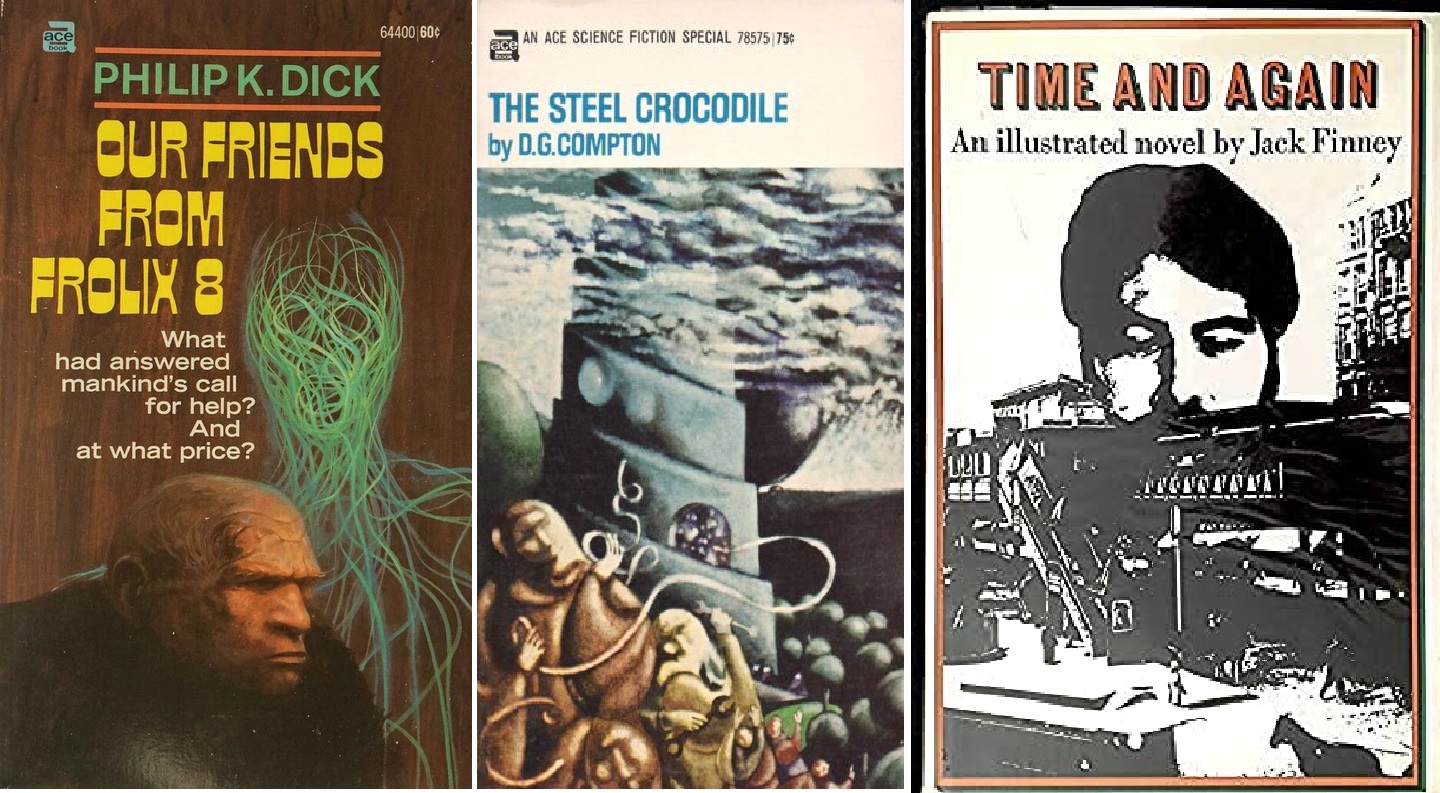

by Jason Sacks
Our Friends from Frolix 8, by Philip K. Dick
My favorite author, Philip K. Dick, has a new novel out this month. His previous novel, Ubik, was one of my favorite works by him. Ubik was an explosive look at reality and history and happiness and travel and so much more, one of his rich tapestry books which feels beguilingly simple until you pull back the layers and discover the complexity of the world Dick made.
Dick’s new novel is called Our Friends from Frolix 8. Frolix is not as good as Ubik or many of PKD’s other novels. In fact, Dick mentioned to the fan press that this book was a quickly-written attempt to raise cash in a hurry.
But Our Friends from Frolix 8 is not a bad novel, not at all.
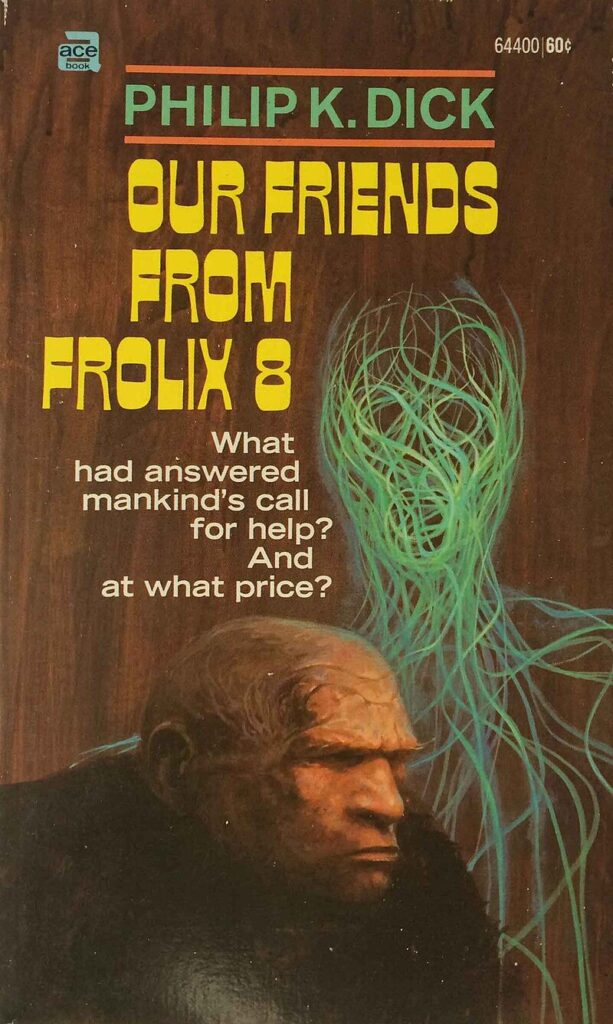
As always, Dick centers his novel around a miserable male protagonist. Nick Appleton is a classic Dickian schlub. He works at the ignoble job of tire regroover, a job his dad had before him, and his grandfather before his dad. But Nick has dreams. No, not for himself. That would be futile in an uncaring world.
Nick has dreams for his son Bobby. As we meet Nick, teenage Bobby is taking the civil service exam in the chance to become an employee of the current Terran government. The government is run by the New Men, evolved superhumans with uncanny abilities to read minds, perform telekinesis, and perform other incredible skills. Bobby has some ability to read minds, so Nick has hopes…
…which are dashed by an uncaring bureaucracy and by the mediocrity of Bobby’s abilities.
In one of the more heartbreaking scenes in a Dick novel, two petty government bureaucrats don’t even bother to look at Bobby’s test scores because they simply don’t care about the boy. The Appletons are Under Men, ordinary people with no ability to advance at all in their society; consequently, there’s just no reason for the bureaucrats to care about this faceless family.
Nick gets more and more angry about Bobby’s fate, in a classic Dickian scene. We feel Appleton’s impotent fury as he literally rages against City Hall to his uncaring wife. As Nick leaves the house to try to figure out how he can help Bobby, Nick begins meeting people who are radicalized to oppose the structure of this impossible world. Through them, he begins to learn about Eric Cordon, leader of the resistance. He soon becomes involved with a group which plans to break Cordon out of government prison.
From there Frolix 8 spins in a few surprising Dickian directions: for one, we meet a council ruler who has the power of telepathy but hates his wife. For another, we spend time with the great Thors Provoni, a man who went into space to learn how to restore Old Men to power and returns to Earth ready to overturn everything that had happened prior to these events. And we witness revolutions and falls from grace and a whole lot of complex existential angst.
This is almost a great novel. Frolix 8 shows all the signs of having been written fast. There are several distracting continuity errors in the book, and this novel demonstrates how Dick often improvises his books rather than working from an outline. That aspect gives this novel the feeling of veering from one storyline to the next, seldom pausing to consider what happened or to give context.
But in its tale of a perversely arranged society, in its tale of a simple man whose smallest dreams are thwarted, in its wildly imaginative tale of Thors Provoni, this actually is a pretty good Dick novel. I found myself upset when Nick was upset, found myself raging mentally about his family's raw deal, and found myself grooving on the way PKD seems to pinball from one idea to the next, scarcely giving me the chance to catch my breath.
Even average Dick is pretty great.
4 stars.

by Brian Collins
Until a couple years ago, I had no idea who D. G. Compton was. I don't keep up with the British writers as much as I ought to; you could consider it an unconscious tendency, sprouting from the Irish part of my heritage. But Compton has written about one novel a year over the past five years and one or two have fallen through the cracks. I have yet to read Synthajoy or Farewell, Earth's Bliss, but I do have his latest, The Steel Crocodile. This is a ponderous and only nominally SFnal novel, but these qualities are mostly to its advantage.
The Steel Crocodile, by D. G. Compton
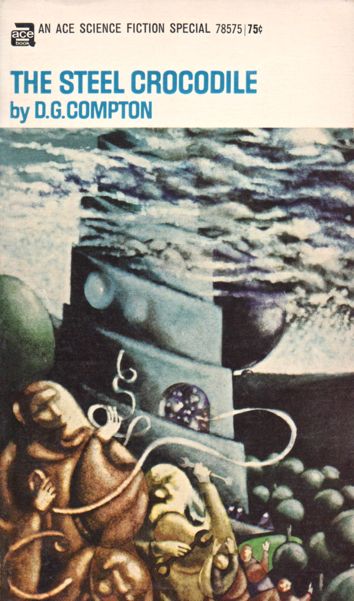
Matthew and Abigail Oliver have hit a snag in their marriage, or rather a few related snags. Matthew is a sociology professor who takes a job working for the Colindale Institute, an international institute of scientists responsible for controlling (advancing as well as sometimes restricting) scientific discoveries in Britain and mainland Europe. The Colindale has come under fire from the CLC (Civil Liberties Committee) over ethical quandaries, including corruption within the institute. One of these CLC guys, Edmund Gryphon, was an old college buddy of Matthew's, and so Gryphon wants Matthew to find out what he can about the Colindale once he's inside. Mere hours after their meeting, police find Gryphon dead—apparently murdered with a laser weapon. The news is a shock to the Olivers, not least because Abigail used to have romantic feelings for Gryphon. Abigail herself is a devout Catholic while Matthew is basically an agnostic, the latter admitting that his faith in the God of Abraham is weak, and also filtered through his wife's genuine devotion. Without Abigail, Matthew would not believe in God.
We're met with a murder mystery in the first chapter, but it turns out that John Henderson, Matthew's predecessor at the Colindale, also died under suspicious circumstances. We have two deaths, as if we're in a detective novel—only there's no detective, no Sherlock Holmes or Philip Marlowe on the case. We do eventually get answers as to who or what killed these men, but Compton is far less interested in solving his own mystery than observing the slowly crumbling relationships of the characters involved in said mystery. The novel is structured such that we alternate between Matthew and Abigail's perspectives, from scene to scene, showing that despite their marriage appearing happy on the surface these are two very different people with different ideas as to what might be happening at the Colindale. Abigail's plot is complicated by her younger brother, Paul, being a wide-eyed revolutionary who has rejected both Matthew's company-man attitude and Abigail's Christian pacifism. These are characters with conflicting loyalties; in other words, they're a lot like real people.
I don't recall there being a given year for the events of the novel, but The Steel Crocodile could just as likely take place a decade from now as anywhen. Compton's near-future Britain is troubled—maybe only slightly more than the Britain of today. There is, of course, a big and very SFnal threat, in the form of the Bohn 507, a super-computer housed at Colindale headquarters. The Bohn is not akin to HAL 9000, but rather is shown to be little more than a tool for the Colindale's director and his dreams of producing what I guess I could describe as a surrogate for God. Ah yes, a computer thinking itself God, I'm sure we haven't heard that one before; but the same time, the point of the Bohn is not to develop a God complex but to provide what all the religion and ethics classes in the world could not. Much like how The Steel Crocodile is a detective novel without a detective, the world of the novel is undoubtedly a Christian one—only God is nowhere to be found. He seems to have gone out for lunch. This is a problem that disturbs Abigail, naturally, although despite SF's tendency towards atheism (or at least indifference at the idea of the Biblical God), Compton does not make light of Abigail's beliefs or taunt her for it. Abigail is indeed one of the best female characters I've read in an SF story as of late, by a considerable margin.
There is also, unfortunately, the sense that The Steel Crocodile does spin its wheels occasionally; at just over 250 pages it could have been trimmed here and there. There is also the sense, between all the internal monologuing (which there is a lot of) and the debates between characters, that Compton really wants his novel to be About Something; luckily for him, it is. We rarely get religiously serious SF novels (Walter M. Miller's A Canticle for Leibowitz, James Blish's A Case of Conscience and more recent Black Easter, plus a few others), but if Graham Greene were to write an SF novel (it's possible, but unlikely), it would look something like The Steel Crocodile. I would say, as someone who is not a Catholic or even a Christian, that this is a high point of praise.
Four stars.

by Winona Menezes
Time and Again, by Jack Finney
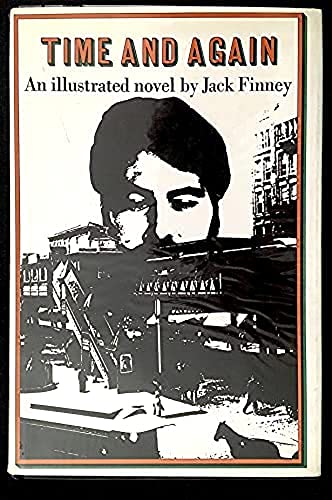
Jacket design by Vincent Ceci / Push Pin Studios
I know we’ve all read what feels like a million stories about time travel, but Jack Finney’s latest novel, Time and Again, strips the genre to its skeleton and assembles a different sort of story around it, one that presents a compellingly alternative way to tell a story driven by time travel. Si Morley, a sketch artist working in advertising in New York City, is jolted out of his respectably ordinary life by representatives from a top-secret government project. He has been determined to be the perfect specimen to test a truly surreal hypothesis: that if given enough training, and with a little push from hypnotic suggestion, it might be possible for a person to force themselves back to a specific point in time through willpower alone. To my surprise, this actually works, and Si finds himself trying to navigate the NYC of 1882 in order to solve a decades-old mystery.
Every author who uses NYC as a backdrop at least attempts to pin down a likeness of the city true to their own perceptions, and no good likeness is ever the same as another, but somehow they all feel accurate. I think it's endlessly fun to experience how yet another writer is going to bring to life such a multitudinous city, and here we get two! Finney produces a modern-day NYC that feels suffocatingly huge, a giant on the verge of collapsing under the weight of progress. By contrast, his 1882 NYC is a near-perfect tableau of glittering galas and horse-drawn carriages.
I am not the sort of person to be easily convinced to romanticize New York in the 1800s – the smallpox and smell of horse manure alone is enough to remind me how grateful I am to live in a more comfortable age. But Si has an artist’s eye, and Finney brings his perspective to life so vividly that I really felt like I was seeing this old world through him with no time to dwell on any annoying practicalities. The book is beautifully illustrated with Si’s sketches and photos, and the way he sees the old New York makes a perfectly romantic backdrop for a well-paced mystery.
Absurdly, the book chooses not to elaborate almost at all on the mechanism of time travel, audaciously rejecting the fancy machines and sciencey jargon of other works in the genre. When the explanations I was waiting for did not come, I realized that the story was asking a lot more of my imagination than I was used to. It almost feels too dignified to dirty its hands with pseudo-technical exposition, leaving more room to explore the philosophical and ethical concerns that crop up in the process of trying to engineer human history. If time travel were invented today, exciting as it would be, I do actually think I would be less concerned with how it was made possible and more worried about those with access to it running amok through the past trying to tweak things in their own image. At the very least, I hope that whoever gets to time travel first reads this book and fancies themselves a Si Morley.
Five stars; this one made a believer out of me.
[New to the Journey? Read this for a brief introduction!]

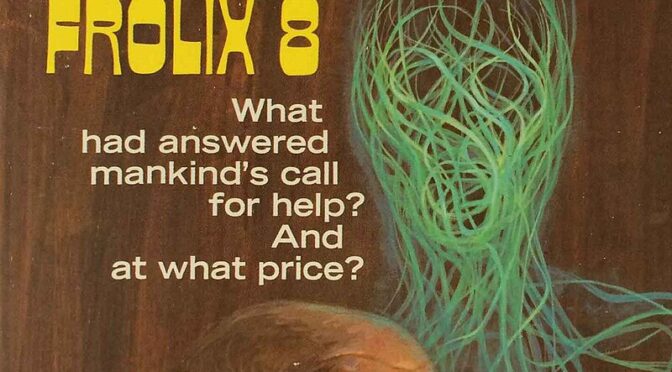


Yep! I too loved Time and Again.
This literary form of the illustrated novel is intriguing. I'm guessing that Finney might have "invented" it on his own but that someone's done something of the sort before. I wouldn't be surprised to see some writer of definitely literary fiction work with this approach.
But Time and Again is one I will want to read again.